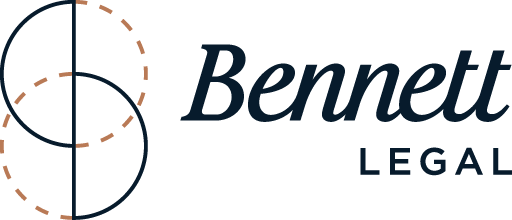Understanding Solar Panel Loans

Solar panel loans are financing options that allow homeowners and businesses to install solar energy systems without paying the full cost upfront. As solar energy is popular due to environmental and financial benefits, loans have become a standard method to make systems more accessible.
These loans typically fall into two categories: secured and unsecured. A secured solar loan is often for the home itself and requires collateral, which can result in lower interest rates but pose greater risk if you miss any payments. Unsecured loans, by contrast, do not require collateral but often carry higher interest rates and stricter credit requirements.
Loan terms can range from 5 to 25 years, and the loan amount, interest rate, and repayment period influence monthly payments. Some loans offer deferred payments or interest-free introductory periods, which may appeal to specific borrowers. However, these are often the most dangerous types of loans because you may pay little now, only to be stuck with crippling balloon payments later in the life of the loan.
One significant benefit of a solar panel loan is that the homeowner owns the system outright, allowing them to take advantage of federal and state tax credits, rebates, and long-term energy savings. Unlike leasing or power purchase agreements (PPAs), loan holders can benefit from any increase in home value due to the solar installation. Before committing, borrowers should carefully compare lenders, terms, fees, and interest rates. Some solar installers partner with financing companies, but independent lenders or credit unions may offer better deals. However, you may not have had a robust opportunity to compare your options because of the pressure the solar panel financing company places on you.
How Do Consumers End Up with Unwanted Solar Panel Loans?
Solar panel companies have financial incentives to force unfavorable loans on consumers. They often make even more money on financing than on the actual solar panels and installation. Customers may pay far more than the original amount that they owed on the loan.
Consumers can face unwanted solar panel loans for several reasons, often due to misleading sales tactics, lack of information, or unclear contract terms. Here are some common ways this happens:
- High-Pressure Sales Tactics: Some solar companies use aggressive door-to-door sales or cold calls, pressuring homeowners into signing quickly without fully understanding the loan terms.
- Misrepresentation of Costs or Savings: Salespeople may overstate the savings on energy bills or understate the costs of the loan, leading consumers to believe the system will “pay for itself” or be free.
- Confusing Contracts: Loan agreements may be complex or buried in digital forms, making it difficult for consumers to realize they are agreeing to a long-term financial commitment.
- Bundled Services: Some consumers think they are signing up for a government rebate program or utility service rather than a private loan.
- Failure to Disclose Loan Details: Some companies do not clearly explain interest rates, repayment terms, or the consequences of default, leaving borrowers surprised by monthly payments.
- No Cooling-Off Period: In some states, there is no legal requirement for a cancellation period, so consumers cannot easily back out once they realize the loan isn’t what they expected.
The Consequences of an Unwanted Solar Panel Loan
An unwanted solar panel loan can have serious and lasting financial consequences for homeowners. These loans are often long-term obligations—commonly 20 to 25 years—with high interest rates and monthly payments that may not match the promised energy savings. As a result, homeowners may have to pay more each month than they did before installing solar panels.
One major consequence is the impact on credit and debt-to-income ratio, which can affect the ability to qualify for future loans or mortgages. Some solar lenders also file a lien or UCC-1 financing statement against the property, which can complicate refinancing or selling the home. Potential buyers may be unwilling to assume the loan or may demand that the owner pays it off before closing.
Additionally, if the homeowner misses a payment or is in dispute, the loan can default, damaging the homeowner’s credit score and potentially resulting in collection actions. In some cases, the solar company may poorly install the panels or make them nonfunctional, adding further frustration and expense.
Many consumers also face limited recourse options, as solar salespeople often work independently from the lender, making it difficult to resolve complaints. Therefore, acting quickly, seeking legal advice, and exploring ways to dispute or cancel the loan is essential.
Can I Challenge an Unwanted Solar Panel Loan?
Your solar panel loan may be unwanted for several reasons. You may often learn that what you agreed to differs from what the solar company told you during the sales process. Then, you must take steps to overcome a financial decision you did not anticipate.
You can challenge an unwanted solar panel loan—especially if the solar company misled you, pressured you into signing, or did not fully inform you about the loan’s terms. Consumers often report deceptive sales practices in the solar industry, such as having the solar company tell them the panels were free, misrepresented savings, or rushing into digital contracts they did not understand.
To challenge the loan, start by reviewing the contract and gathering documentation, such as emails, text messages, and any promotional materials used during the sale. Suppose you believe the solar panel financing company defrauded or misled you. In that case, you can file a complaint with the Consumer Financial Protection Bureau (CFPB), the Federal Trade Commission (FTC), and your state’s attorney general.
You may also have legal grounds to cancel the contract under state consumer protection laws, especially if there was no clear disclosure of financing terms or the solar panel financing company denied you a cancellation period. An attorney can help you assess whether the solar panel financing company’s sales practices violated any laws and can negotiate with the lender or installer to cancel or modify the loan.
Ultimately, it is up to you to fight when you find yourself in an abusive and unwanted solar panel loan because this is the only way that you may become eligible for relief. The solar panel financing company is not counting on you asserting your rights. These companies believe that you will continue to pay for the duration of the loan under the oppressive terms they forced on you at the outset of the financing agreement.
Grounds to Challenge an Unwanted Solar Panel Loan

There are several legal grounds to challenge an unwanted solar panel loan, primarily if the homeowner obtained the loan through deceptive, high-pressure, or unfair business practices.
Homeowners may not realize they have signed up for a long-term financial obligation until they receive loan statements or discover a lien on their property. Below are some of the most common grounds for disputing these loans:
- Misrepresentation or Fraud: If a solar company falsely claimed the panels were “free,” that they will eliminate your utility bill, or that the government was covering the cost, these may qualify as fraudulent misrepresentations. You can challenge the loan if you relied on these false claims when agreeing to the contract.
- Lack of Informed Consent: Solar financing companies may rush many consumers through digital contracts on tablets or pressure them into signing without reviewing loan terms. If you did not have a clear opportunity to read and understand the agreement, or if the solar company hid or altered the terms, you may have a valid legal argument that you did not give informed consent.
- Violation of Consumer Protection Laws: Some companies violate federal or state consumer protection laws by using deceptive sales practices or failing to disclose critical financing information. State laws may also require a cooling-off period or written notice of cancellation rights.
- Unfair or Abusive Lending: If the loan terms were exploitative, such as extremely high interest rates, unreasonable repayment terms, or automatic liens placed on your home, you can challenge the loan as unfair or unconscionable.
Consulting with a solar panel financing fraud attorney is essential. They can review your documentation, evaluate the sales process, and determine the best course of action, whether that means negotiating cancellation, filing a formal complaint, or pursuing legal action.
How a Solar Panel Financing Fraud Lawyer Can Help You Get Out of an Unwanted Loan
A solar panel financing fraud lawyer can be an invaluable ally if a company has trapped you into an unwanted or misleading solar panel loan. These loans are often the result of aggressive sales tactics, misrepresentations, or hidden terms that homeowners did not fully understand at the time of signing. A skilled solar panel financing fraud attorney can evaluate your case to determine whether the solar company fraudulently induced the loan, lacked proper disclosure, or violated state or federal consumer protection laws.
First, a lawyer can analyze the contract and related documents to identify legal weaknesses. Many solar contracts include vague language, hidden fees, or fail to disclose critical financing information. Suppose there is evidence of deception, such as claims that the panels were “free” or will eliminate your electric bill. In that case, your attorney may argue that the agreement is unenforceable due to fraud or misrepresentation.
Second, a lawyer can negotiate with lenders or installation companies on your behalf. They may seek to cancel the contract, secure a refund, or restructure the loan to more favorable terms. Legal action may be necessary in some cases, especially if the company refuses to resolve the issue voluntarily.
Third, your attorney can help you file complaints with the Consumer Financial Protection Bureau, state attorney general’s office, or the Federal Trade Commission. These regulatory avenues can pressure companies to respond or change their practices, mainly if numerous consumers similarly situated to you have filed complaints about the same company.
Finally, a solar panel financing fraud lawyer can represent you in court to pursue damages or cancellation if litigation is necessary. Whether through negotiation or legal action, an experienced solar panel financing attorney can protect your rights and ensure you escape from a loan that was never properly agreed to in the first place.
Call A Solar Panel Financing Fraud Lawyer Today
If you have not contacted a solar panel financing fraud lawyer to discuss your loan, now is the time. You may have a limited amount of time to take action to get out from under an oppressive loan. A lawyer can advocate for your rights and work towards a favorable outcome. From negotiating with lenders to representing you in legal proceedings, an attorney can provide the support and experience needed to help you get out of a solar loan you never agreed to. Remember, you do not have to face this situation alone – seek the guidance of a qualified attorney to protect your rights and financial well-being.

